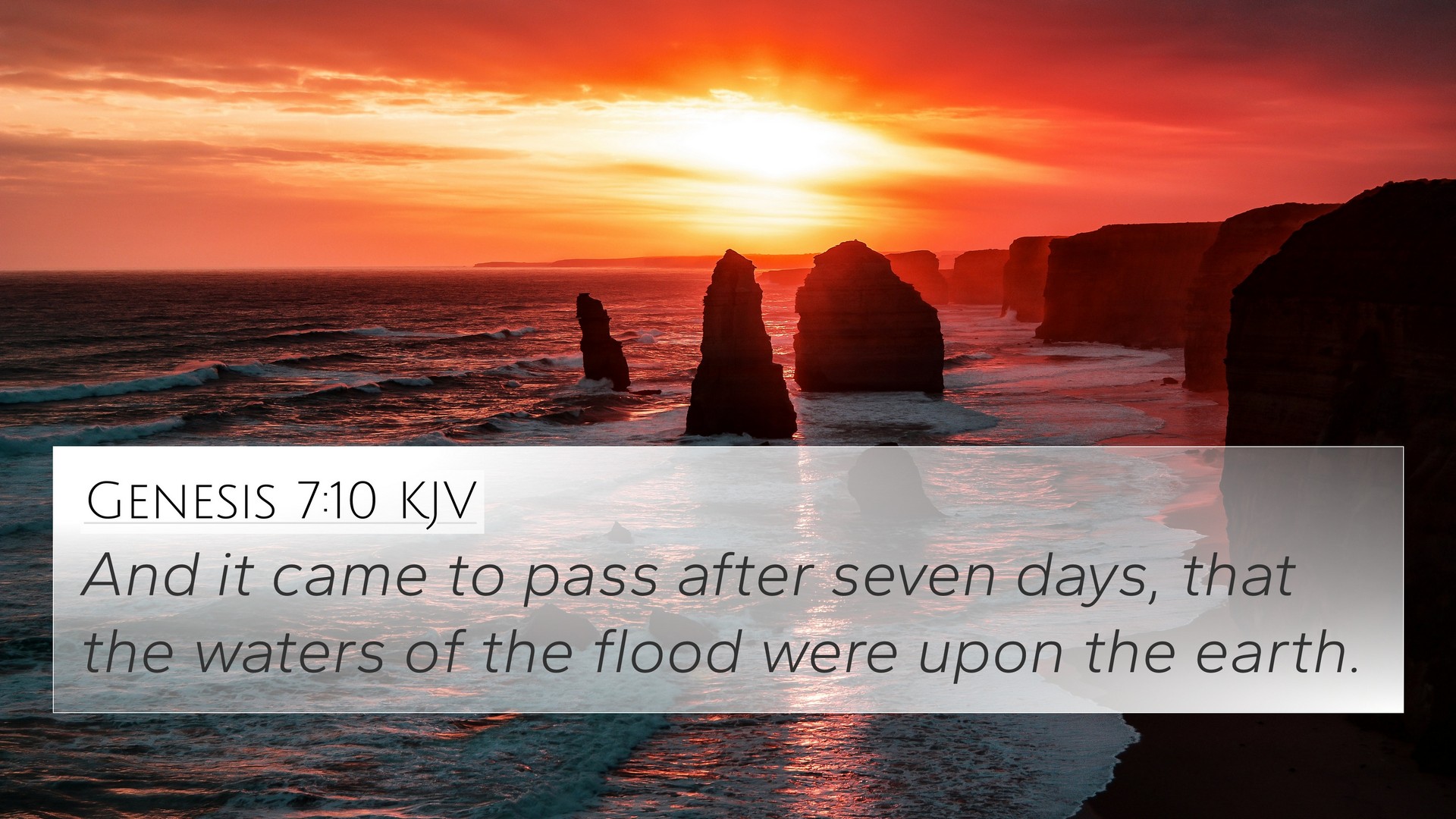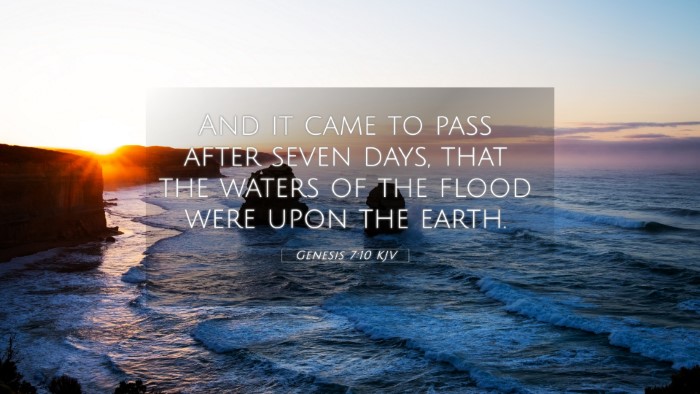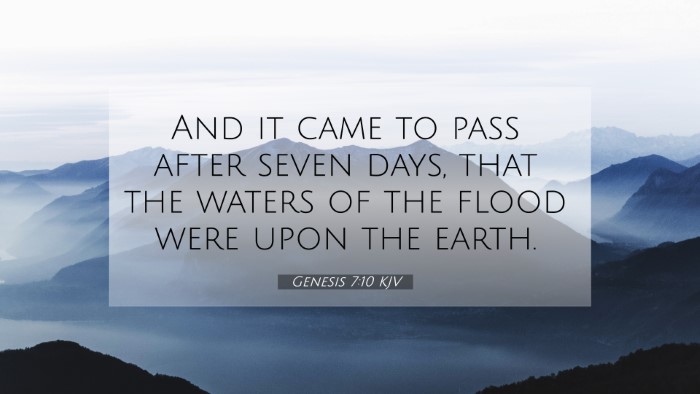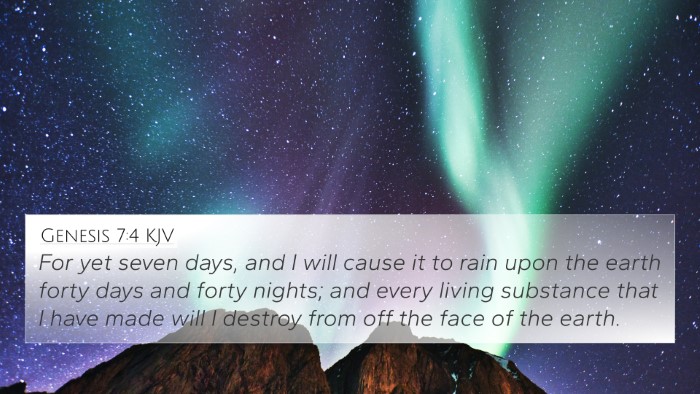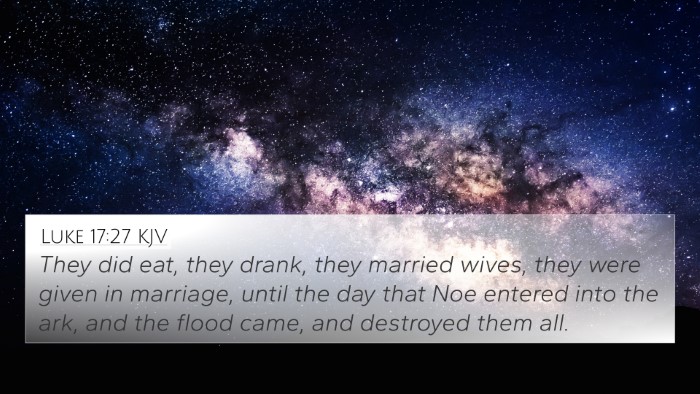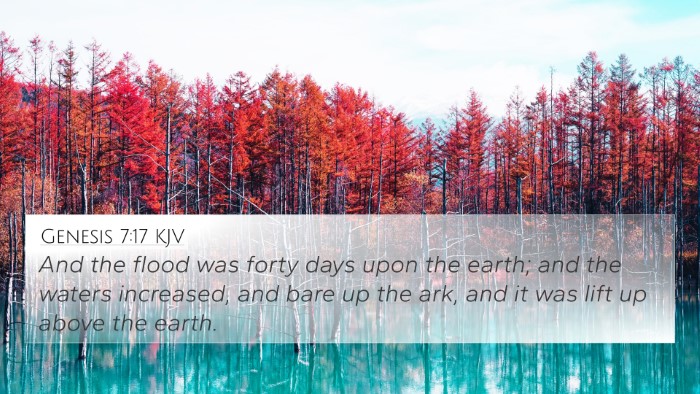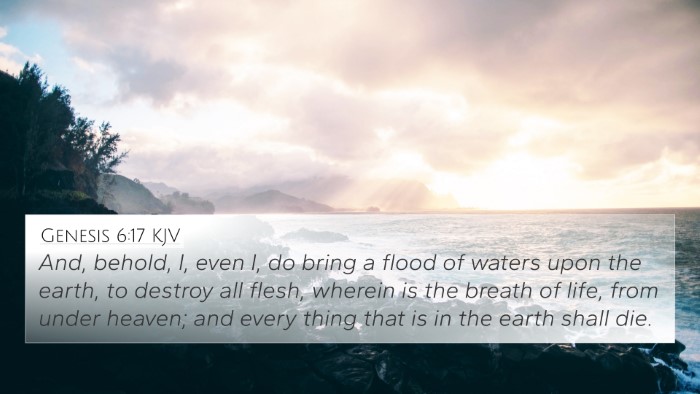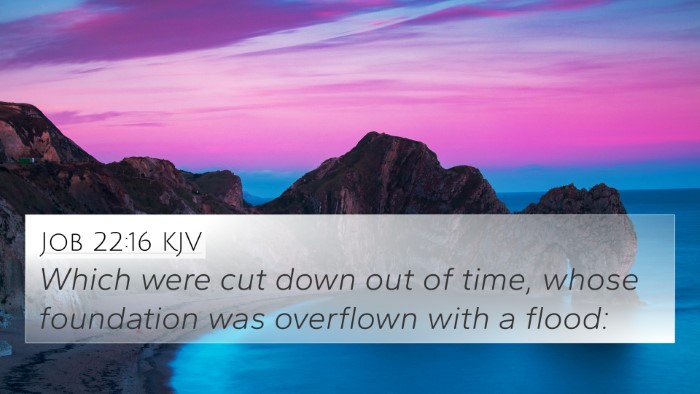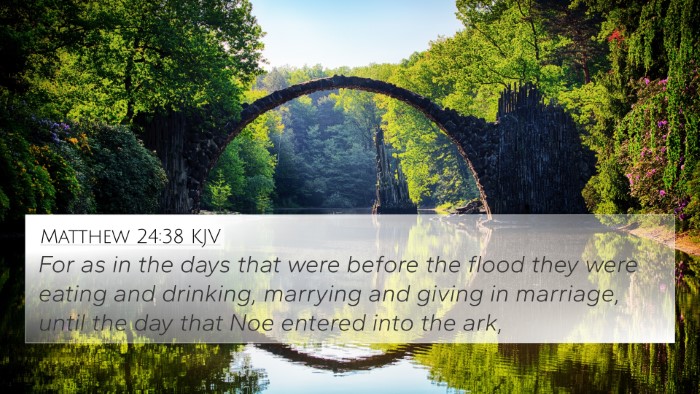Bible Verse Meaning: Genesis 7:10
Genesis 7:10 reads: "And it came to pass after seven days, that the waters of the flood were upon the earth." This verse encapsulates the beginning of the great flood, an event of significant theological and historical importance, marking a divine judgment against human wickedness. The verse serves as a critical link in understanding God’s response to the pervasive corruption in the world at that time.
Summary of Interpreted Meaning
The flood story illustrates several crucial themes in the Bible, explored in commentaries from scholars like Matthew Henry, Albert Barnes, and Adam Clarke. Here’s a synthesis of their insights:
- Divine Judgment: The flood signifies God's ultimate judgment on humanity due to its unrepentant sinfulness. According to Matthew Henry, this judgment reflects God’s righteousness, as He cannot overlook sin.
- Obedience of Noah: Noah's preparation for the flood—building the ark and gathering the animals—shows profound obedience and faith. Albert Barnes emphasizes how Noah became a herald of righteousness during the time of waiting.
- Covenant and Promise: The flood narrative ultimately leads to God's promise to humanity post-flood, represented in the sign of the rainbow, establishing a covenant for preservation (Genesis 9:11-17). Adam Clarke highlights how this establishes a foundational relationship between God and humanity.
Connections and Cross-References
This verse can be cross-referenced with several other scriptures that relate to themes of judgment, obedience, and divine promise:
- Genesis 6:5-6: A precursor to the flood, describing the corrupt state of humanity.
- Genesis 9:11: God's covenant to never destroy the earth again with a flood.
- Matthew 24:37-39: Jesus refers back to Noah's days to illustrate the suddenness of judgment at the second coming.
- Hebrews 11:7: It commends Noah's faith in preparing for things not yet seen.
- 2 Peter 2:5: Noah is described as a preacher of righteousness, emphasizing his role in warning others.
- Romans 1:18-19: Discusses God’s wrath against the wickedness of humanity, showcasing the nature of divine judgment.
- Revelation 21:1: Speaks of the new heaven and earth, contrasting with the destructive flood judgment.
- Isaiah 54:9: References the flood as a reminder of God's promise not to bring such judgment upon the earth again.
Thematic Connections
The broader themes found in Genesis 7:10 with connections to various Biblical texts include:
- God’s Sovereignty: The flood demonstrates God's absolute control over creation.
- Human Responsibility: Humanity's actions directly affect their relationship with God.
- Salvation through Obedience: Noah’s salvation signifies the importance of obedience to God's word.
- Hope and Renewal: After judgment, there comes a promise of hope and new beginnings.
Tools for Bible Cross-Referencing
For those seeking to deepen their understanding of Genesis 7:10, using tools for Bible cross-referencing can enhance your biblical studies. Some effective methods include:
- Utilizing a Bible concordance to look up keywords related to judgment and Noah.
- Employing a Bible cross-reference guide to explore interconnected themes.
- Engaging in cross-reference Bible study groups for communal insights.
- Using a cross-reference Bible study system to systematically link verses across both testaments.
Conclusion
Understanding Genesis 7:10 offers a profound glimpse into God’s character—His justice, mercy, and the divine plan for humanity. The intertwining themes highlighted in this verse resonate throughout Scripture, making the study of cross-references an invaluable resource for uncovering deeper insights within the Bible.
